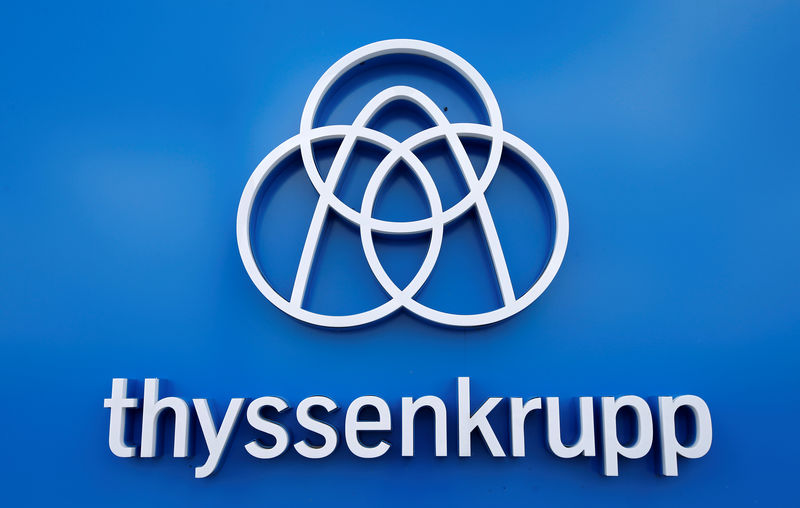FRANKFURT (Reuters) - German engineering and steel group Thyssenkrupp (DE:TKAG) has created a new unit for its global forging activities in a bid to cater to new industries and cut reliance on combustion engine parts, which still account for a large part of its business.
The unit, forged technologies, was formed Oct. 1, the start of Thyssenkrupp's fiscal year, and has about 7,000 employees and sales of more than 1 billion euros ($1.2 billion), with 18 production sites and distribution in more than 70 countries.
It is attached to Thyssenkrupp's components business division and will be managed from the group's headquarters in Essen.
"Central management of our worldwide production network will enable us to use our facilities more efficiently and align them even more closely to customer requirements," said Karsten Kroos, head of Thyssenkrupp's components business.
"In the future we want to reduce our dependency on previous applications such as the traditional internal combustion engine, for which we still produce a large part of our forged components," Kroos said.
The car industry accounts for a quarter of Thyssenkrupp's sales, making it the group's biggest customer group, but a shift towards battery-powered engines means some parts supplied by Thyssenkrupp may not be needed in the future.
The new unit is a combination of two previously independent units: Brazil-based forging & machining, which makes crankshafts; and undercarriages, which is based in Italy, the group said, adding both had been restructured in recent months.
Thyssenkrupp, which last month announced plans to merge its European steel unit with Tata Steel's (NS:TISC), now wants to expand its product portfolio, singling out raw materials mining, energy generation and mobility as potential target sectors.
Its European steel business, which supplies half of its annual production, or about 6 million tonnes, to the auto industry and its supply chain, expects a boost from the auto industry's shift toward electric vehicles.

($1 = 0.8509 euros)